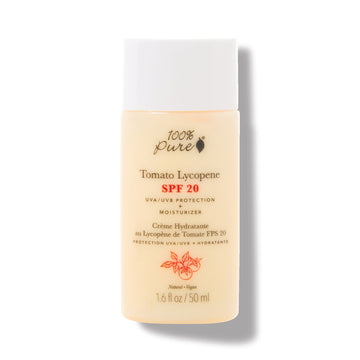Diving deep into the world of this vitamin A powerhouse, and highlighting everything from ‘what is retinol’ to vegan, cruelty-free formulas to add to your PM routine
Written by: 100% PURE®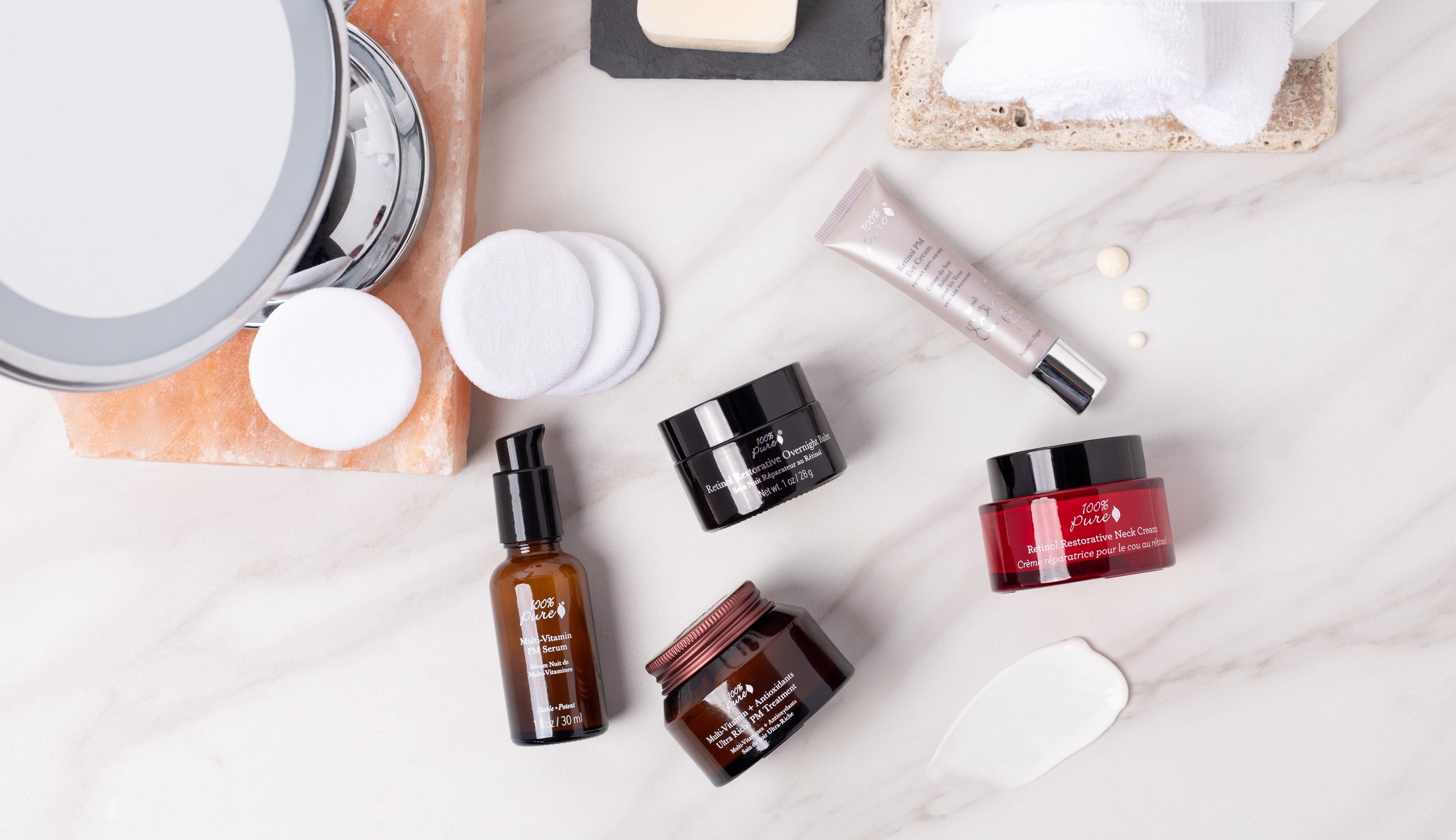
If maintaining a safe, healthy skin care routine is important to you, by now you’ll have learned to read labels of retinol products very closely. If cruelty-free and vegan ingredients are important to you, you should know that retinol is often found as a ‘retinoid’, or animal-derived retinol, in conventional products. On a related note, what IS retinol, anyway? Who should be using it, and who shouldn’t? What happens when certain types of retinol are applied to our skin, ad how do they become effective?
We’re covering all you need to know about how retinol works for skin, the animal sources and vegan alternatives, and how to use retinol products to reap powerful beauty benefits.
Retinol is a preformed Vitamin A found in animal-derived ingredients. Conventional cosmetics usually contain retinol esters called retinyl palmitate and tretinoin. Your body converts these into an active form - retinoic acid - that can then be used by your skin cells. Animal derived retinol and Vitamin A derivatives are called retinoids.
On the other hand, vegans and vegetarians will be looking for synthetic forms of retinol. The addition of carrots and carrot seeds, which are high in beta carotene, can help to enhance the effects of vitamin A – which is why we add both to our retinol products.
Most retinoic acid is derived from the enzymes in milk or egg, and are generally perceived to be more potent for treating skin care issues. Instead we choose to use naturally occurring vitamin A enhancers like carrot seed, and opt for synthetic forms of vegan retinol.
We also use avocado and sunflower oils, which contain their own enzymes to help make the products more absorbable by the skin. Those same enzymes help to enhance the effects of vitamin A in our plant-based retinol balm.
The carrot seed oil we use is harvested from the gorgeous flowering tops of wild carrots, commonly known as Queen Anne’s Lace. Carrot seeds aren’t actually seeds by the standard botanical definition; they’re more similar to tiny, shriveled fruits of the flowering plant that grows above ground, while the carrot grows beneath the soil.
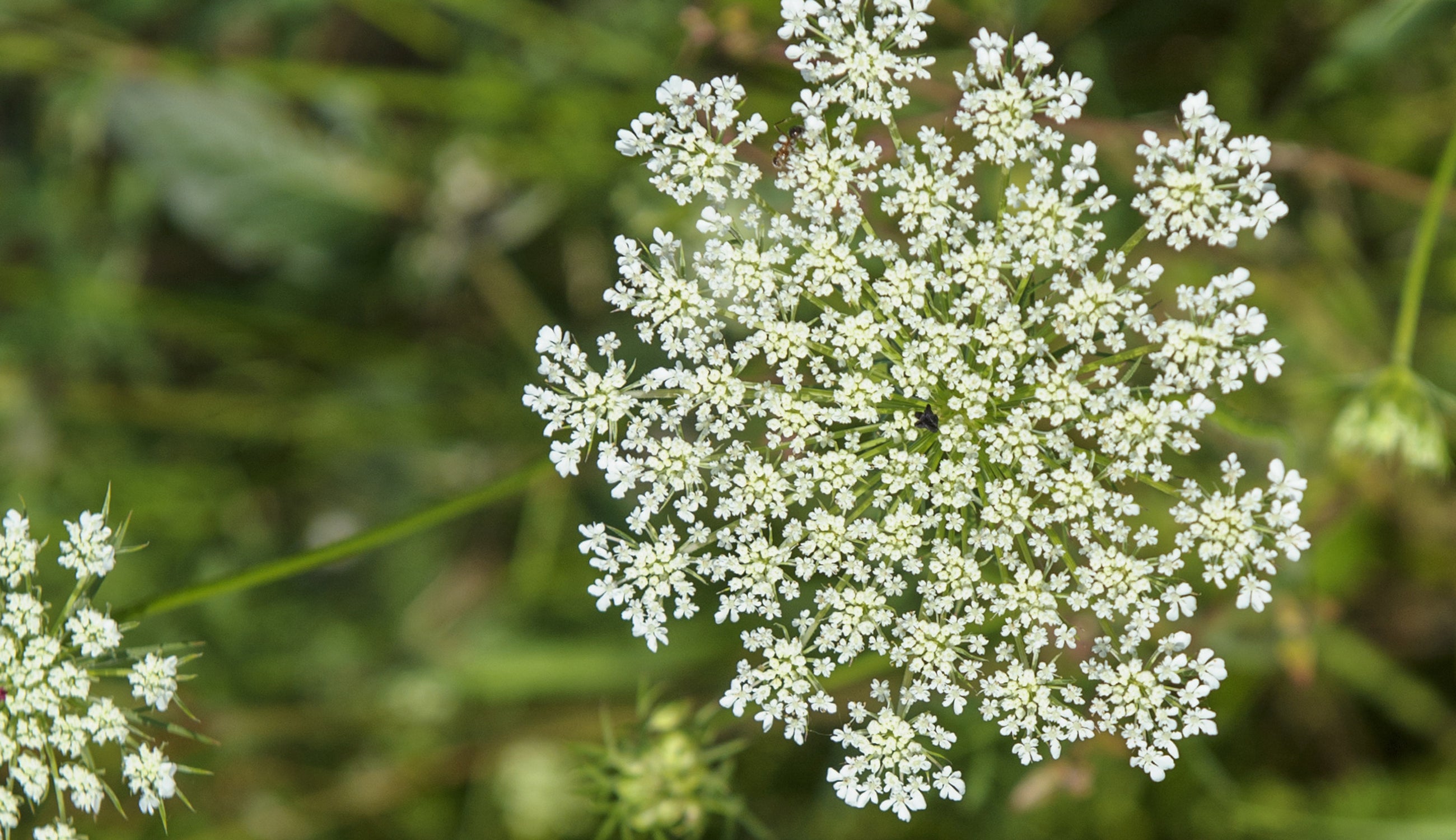 The Benefits of Retinol for Skin
The Benefits of Retinol for Skin
We love retinol because it supplements the human body with something it cannot produce completely on its own. Therefore, it should come as no surprise that retinol is a veritable superstar in the skin care world - capable of impressive anti-aging results, it's a vitamin rivaled by few others.
Retinol products are supremely beneficial for a multitude of skin types, ranging from acne-prone to aging. This vitamin A derivative can be used to unclog pores, counter free radical damage, reduce the appearance of fine lines and wrinkles, balance and tone the complexion, and support collagen and elastin production for more youthful, supple skin. Retinol products can be used daily in your PM beauty routine, but should always be followed the next day with a broad spectrum SPF (we’ll get to that later).
When it comes to internal health, many choose to supplement vitamin A into their diet with dairy, meat, fish, fish oil or vitamins. However, there are also many wonderful vegetarian sources of vitamin A. Dark green leafy vegetables and yellow or orange fruits and vegetables are the best sources of beta-carotene, which converts to vitamin A inside of our bodies. This source of retinol as vitamin A is extremely beneficial for healthy mucous membranes and our immune system, which is super helpful in the fight against colds and viruses. And as most of you know, beta-carotene is a must for maintaining healthy vision and eye health.
Beta-carotene is not only a carotenoid, but an antioxidant too! It helps to neutralize free radicals within our body and will do the same for our largest organ: our skin. Free radicals are byproducts of chemical substances and pollution that can wreak havoc on our cells, which in turn affect our internal and external health. Free radicals have been thoroughly linked to cancer, Alzheimer’s disease, Parkinson’s disease, lowered immunity and heightened signs of aging. In short: supplementing beta-carotene into your diet can show loads of both long and short term internal health benefits.
When applied topically, retinol has tons of impressive anti-aging benefits. If used early, it helps to increase skin’s elasticity and boost collagen production. This encourages the skin’s foundation of suppleness, so that as we age, we’ve already worked to develop a defense against fine lines and wrinkles, making it harder for them to form. For mature skin, retinol can help increase collagen and stimulate cell turnover to slough dead skin layers that often lead to fine lines and dry skin. With repeated use, retinol can also diminish dark spots and improve skin texture.
Important Rules for Using Retinol
As with any great and powerful beauty accessory, there are some important do’s and don’ts that come with the territory. Both retinoids and carotenoids degrade in sunlight, so our biggest reminder is to only apply retinol products at night. Hence, our bedtime-friendly retinol products all stipulate that they should be used in the evening – so don’t break the rules!
Not only will retinol for skin work its most potent magic while you sleep, but it will also be at its safest. When exposed to sunlight, retinol will break down, resulting in increased sensitivity and vulnerability in skin due to a weakening of the skin’s top-most layer. This degradation from sun can have mild to extreme adverse reactions, ranging from mild skin irritation to lesions and increased risk of melanoma.
Even certain types of artificial light emit small amounts of UV rays and can increase the potential for adverse reactions, so if using retinol at night you should avoid direct exposure to fluorescent or halogen light sources. No matter what light source you’re around, just remember the cardinal rule: retinol works right at night!
Also important to note: retinol and some vitamin A derivatives have been flagged as unsafe for women who are pregnant or breastfeeding, even when applied topically. Since there is little research on how much retinol is safe for use while pregnant or breastfeeding, it’s best for women in these situations to avoid retinol altogether, or to discuss alternative options with their healthcare provider.
Time for the main attraction: our lineup of expertly formulated retinol skin care, designed to be used alone but even better together. Check out these nighttime superstars, to find one, two, or 5 products that could work for you!
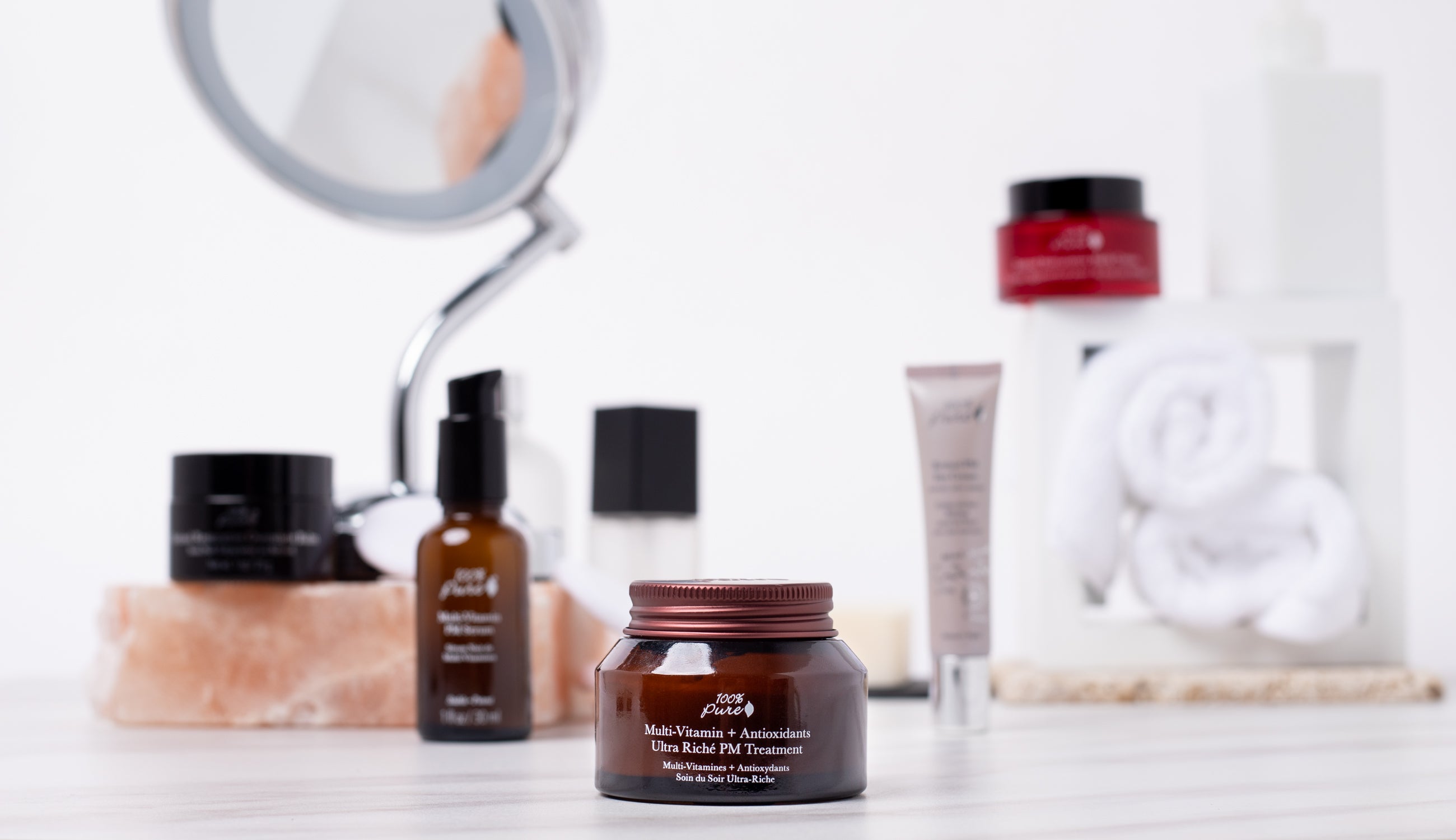
A Team of Nighttime Multi-Taskers
Our beloved Multi-Vitamin + Antioxidants Ultra Riche PM Treatment isn’t solely a retinol product, but it’s packed with nutrients and vitamins, including the retinol-rich vitamin A. This ultra decadent, super luxurious cream is to be used at night, given the potency of Vitamins A and C. Avocado, sea buckthorn and other deliciously rich oils will have you waking to supple, velvet-kissed skin come morning. Our multi-vitamin retinol cream is wonderful for all skin types - including sensitive skin - especially those wishing to increase elasticity, suppleness, and decrease fine lines.
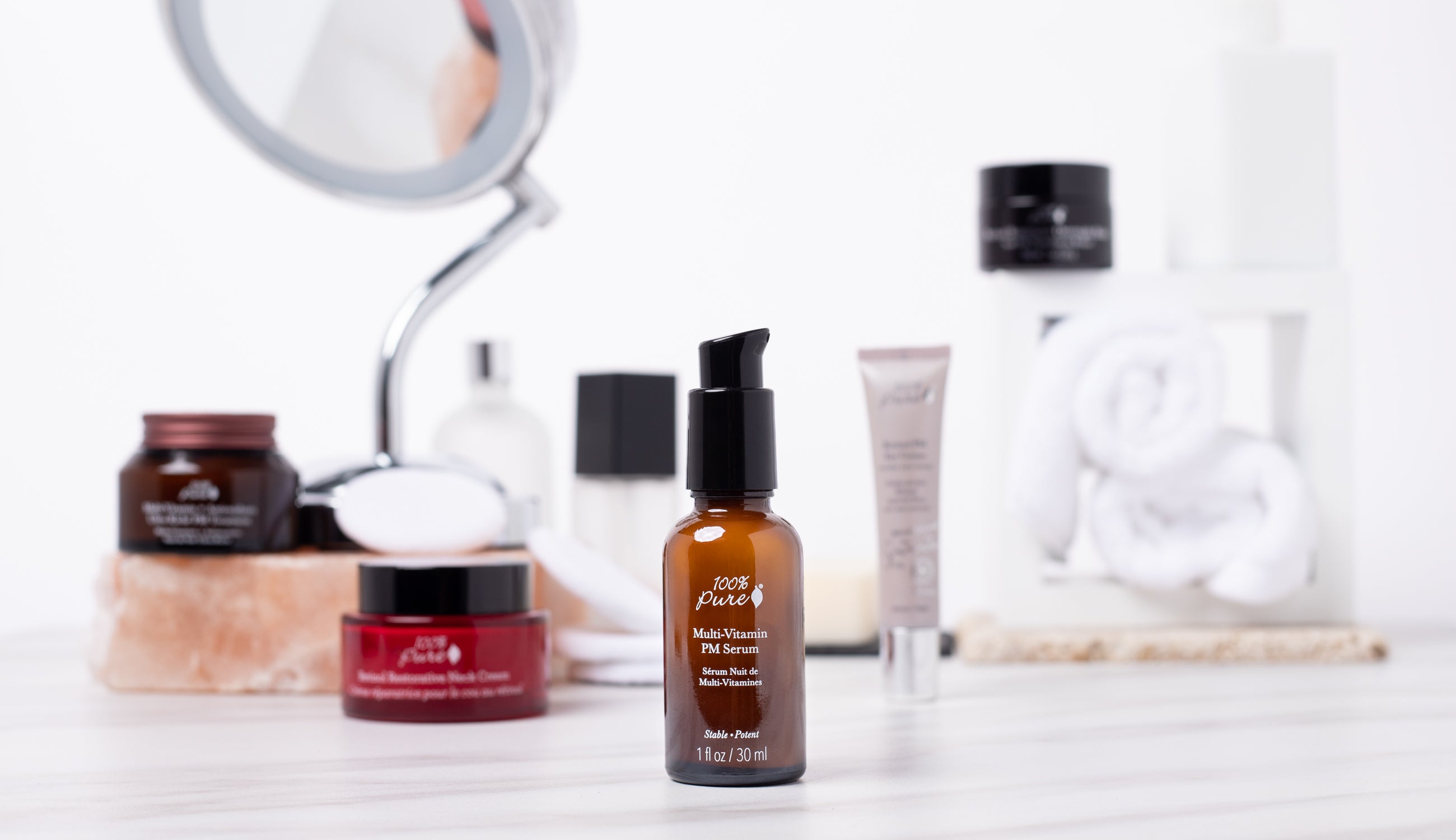
To double up on your multivitamin treatment, layer a serum under your moisturizer. Our Multi-Vitamins + Antioxidants Potent PM Serum is ultra lightweight but packed with heavy-duty vitamins like retinol, vitamin C, niacinamide, CoQ10, and vitamin E. With a base of gently moisturizing rose water, this ultra potent nighttime serum is designed to nourish while delivering an anti-aging one-two punch.
PRO TIP: You can also swap your serum every other night for a retinol-packed sheet mask, like our Does It All or Wrinkle Smooth formulas.
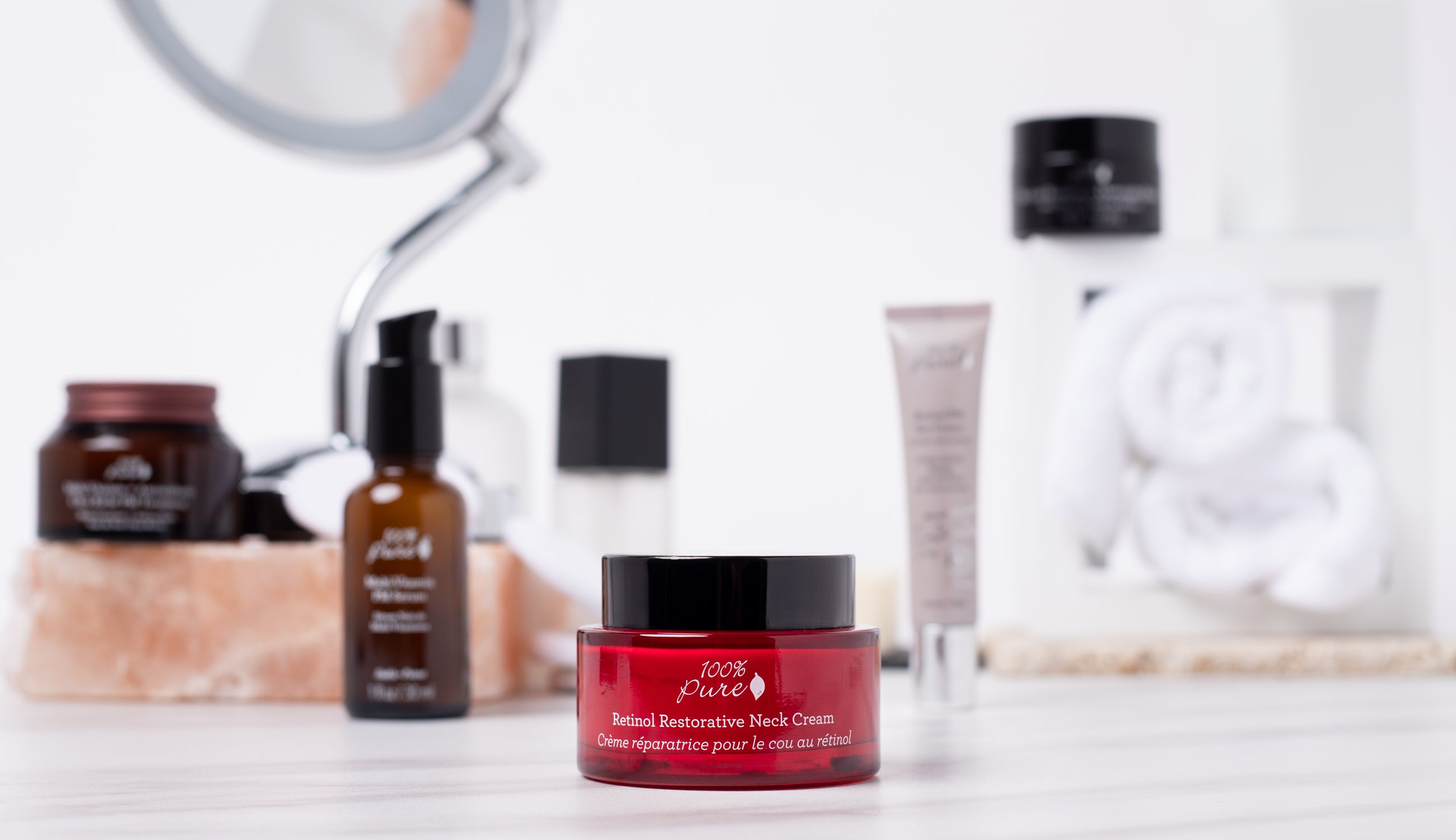
Don’t Forget Your Neck!
Our Retinol Restorative Neck Cream is the unsung hero of our retinol lineup, as it works hard through the night to enliven a spot oft forgotten during most skin care routines. The neck, like the eye area, is made up of some of the most delicate skin on our body. This means it’s especially prone to signs of aging from sun damage, wrinkling and environmental exposure. With a healthy dose applied to fingertips then gently massaged into the neck and decollete before bedtime, our overnight neck cream will help to reduce telltale signs of aging in one of the most delicate and visible areas of the skin.
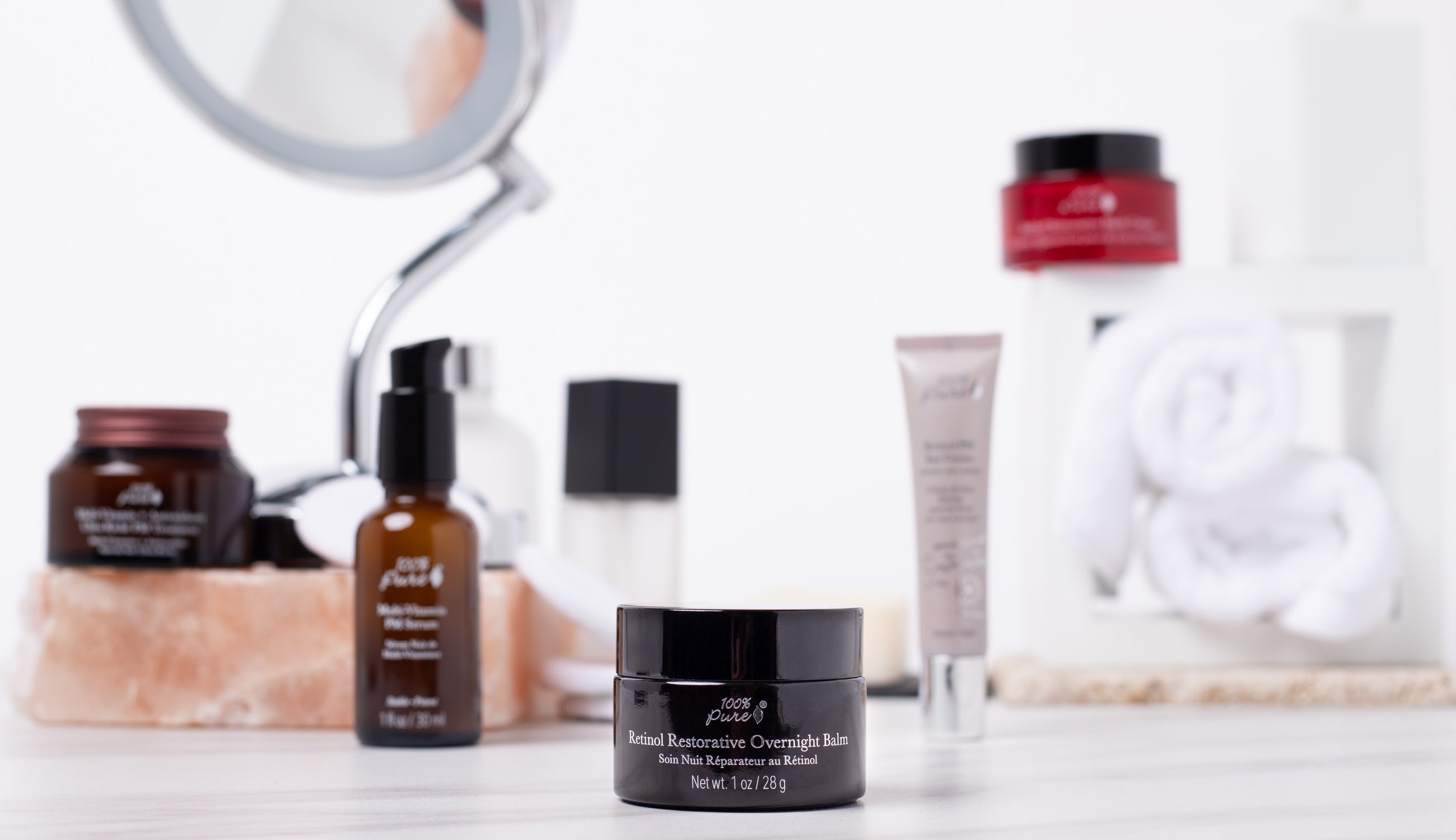
Go Big (and Go to Sleep) with an Overnight Balm
For the full retinol experience, apply the skin softening Retinol Restorative Overnight Balm. Luxurious avocado and shea butters nourish skin while you sleep, while soft scents of jasmine lull you into the realms of dreamland. Sunflower and olive oils moisturize skin so you’ll wake up to softer, more supple skin, aided by the beta carotene from carrot seeds that enhance firmness and diminish fine lines. It might just be our most luxurious, vegetarian balm yet, and was carefully formulated to restore skin’s radiance and elasticity with one of the highest retinol percentages of any 100% PURE™ product.
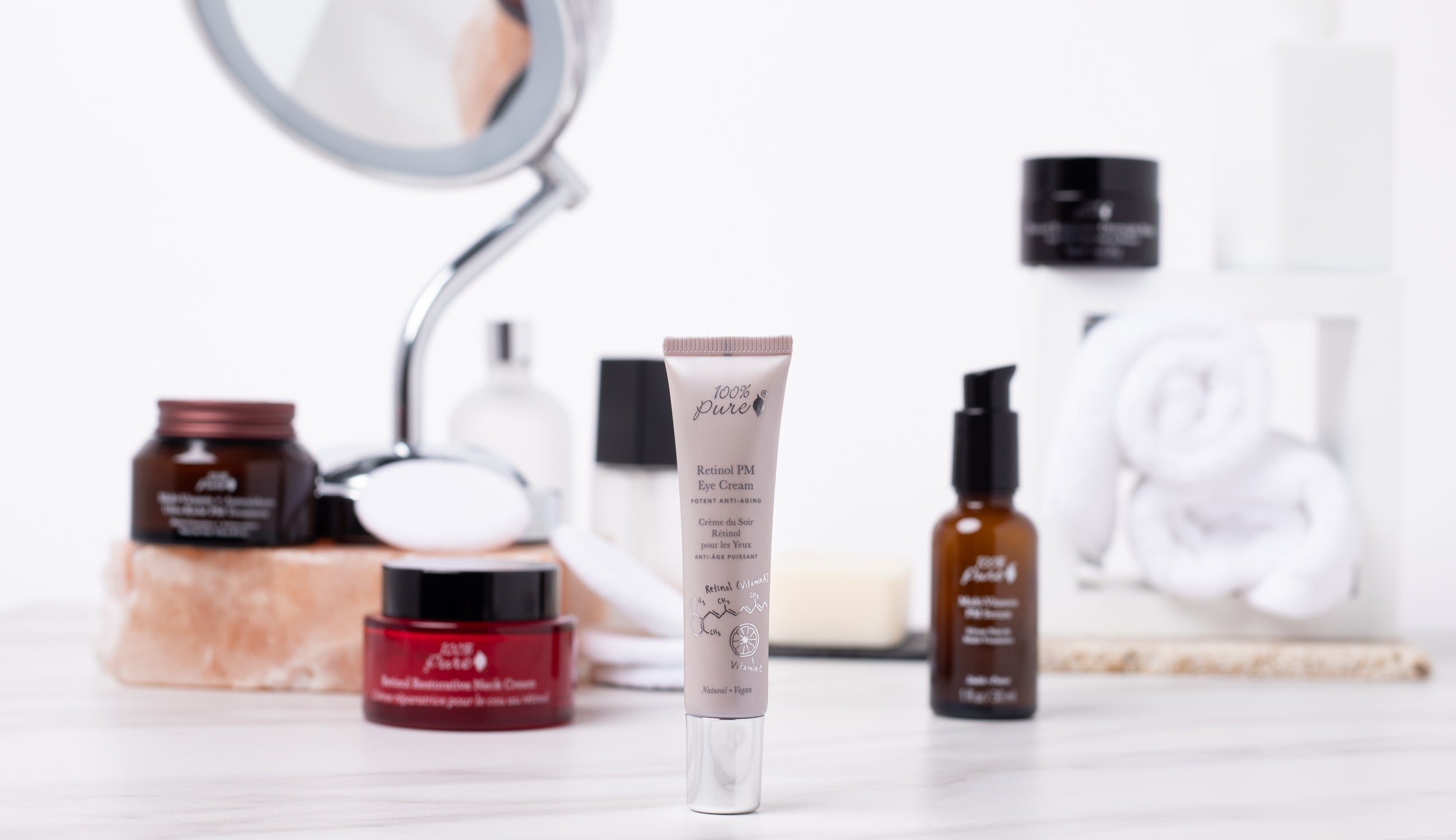
Add a Retinol Eye Cream
Finally, the last addition to your retinol arsenal should be the Retinol PM Eye Cream. Retinol is especially important for your eye area because that particular skin is thinner and more vulnerable to damage. Vitamin A derived is just what you need to smooth those crows feet and eye crinkles for a more youthful smile. We’ve included skin plumping hyaluronic acid to lock in hydration while you sleep, and chamomile butter to deeply moisturize and calm. Have we mentioned that this retinol eye cream is vegan, too?
Next Day Tips After Using Retinol for SkinYour next-day regimen after using retinol is just as important – and it’s something you should already be doing! First, a best practice is to cleanse or rinse in the AM to ensure you have no leftover retinol that will degrade or cause skin photosensitivity (ouch!) when you step into the light. Then, to really help neutralize any leftover carotenoids, apply a broad spectrum SPF to any areas where retinol was applied the night before. Applying a daily facial sunscreen is a must for proper skin care, but is especially helpful to fortify skin after a retinol treatment.
If you’re looking to supplement retinol into your skincare routine, we have something for all areas of concern. As with any retinol product, it’s important to stick with regular application for 10-12 weeks to see the effects – some may see results after only a few weeks. And while retinol must be used properly and with the recommended precautions, we believe that the benefits far outweigh the care and rules required to use it.
- Tags: April-2019, Skin Care
We carefully hand-select products based on strict purity standards, and only recommend products we feel meet this criteria. 100% PURE™ may earn a small commission for products purchased through affiliate links.
The information in this article is for educational use, and not intended to substitute professional medical advice, diagnosis, or treatment and should not be used as such.












